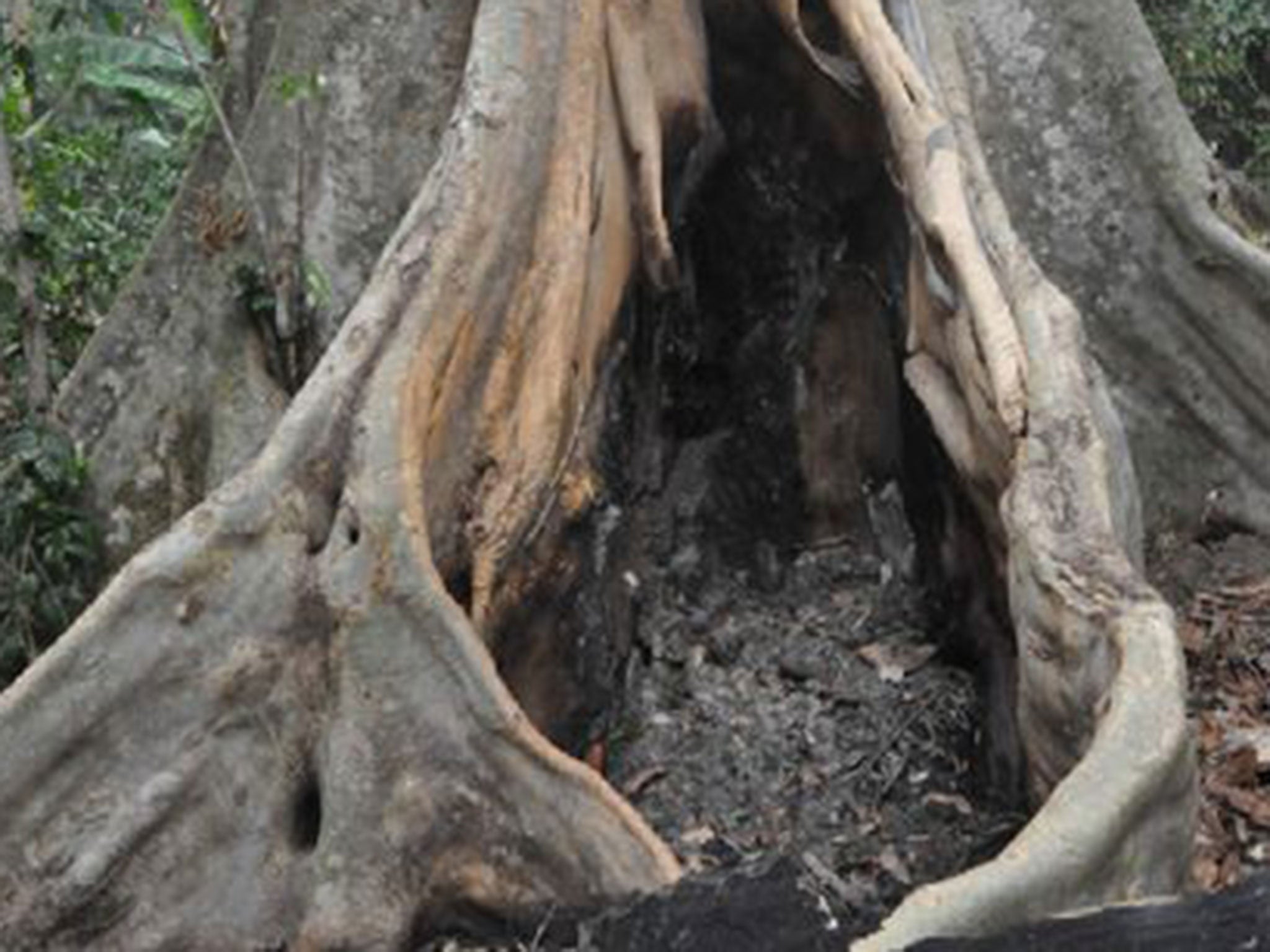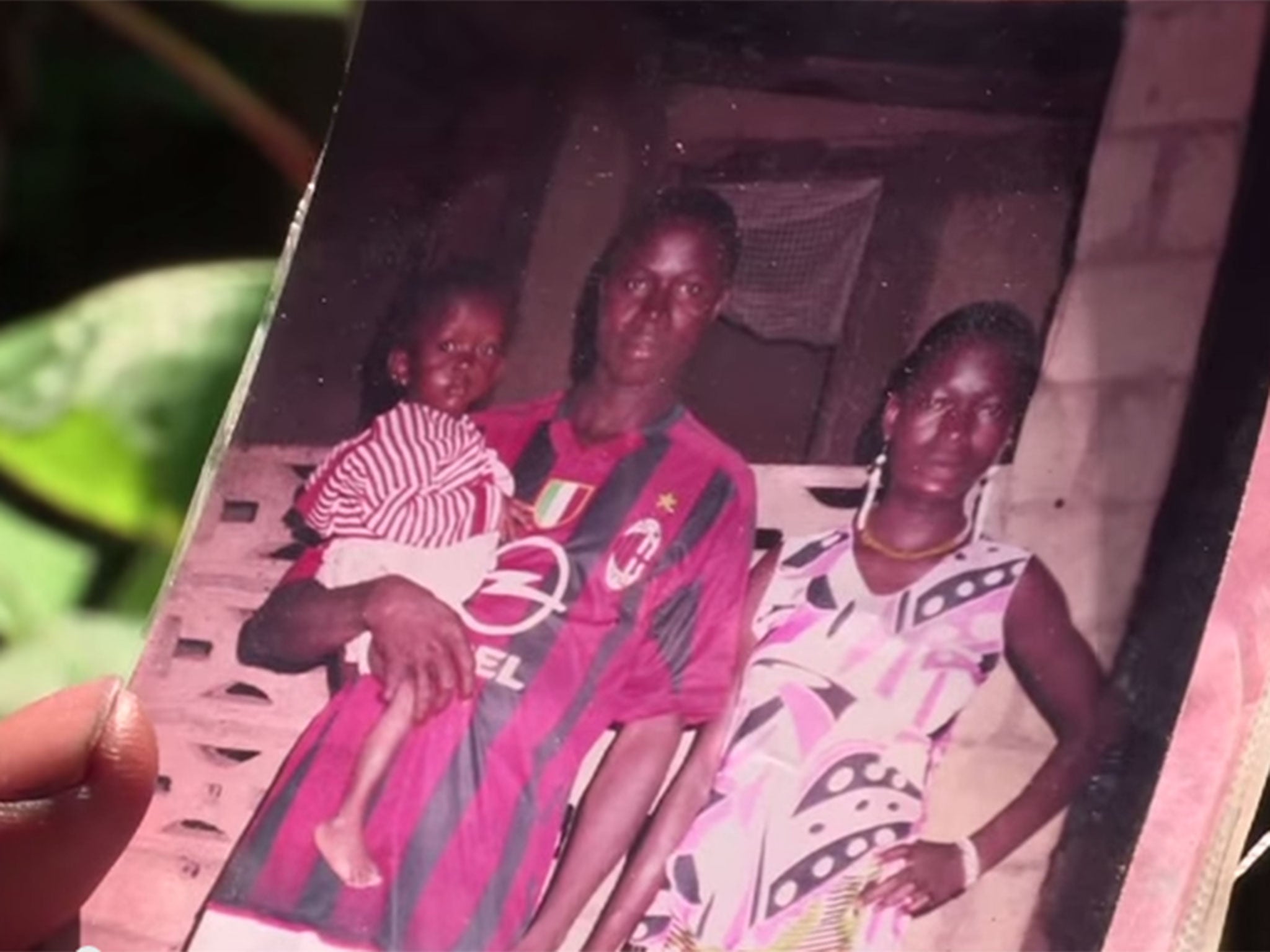Ebola outbreak: Two-year-old boy from tiny Guinea village was first to be infected after playing with bats in tree stump
Emile Ouamouno's death started the current outbreak in Guinea a year ago

Your support helps us to tell the story
From reproductive rights to climate change to Big Tech, The Independent is on the ground when the story is developing. Whether it's investigating the financials of Elon Musk's pro-Trump PAC or producing our latest documentary, 'The A Word', which shines a light on the American women fighting for reproductive rights, we know how important it is to parse out the facts from the messaging.
At such a critical moment in US history, we need reporters on the ground. Your donation allows us to keep sending journalists to speak to both sides of the story.
The Independent is trusted by Americans across the entire political spectrum. And unlike many other quality news outlets, we choose not to lock Americans out of our reporting and analysis with paywalls. We believe quality journalism should be available to everyone, paid for by those who can afford it.
Your support makes all the difference.The two-year-old boy whose death started the current Ebola outbreak may have contracted the deadly virus by playing with bats in a hollow tree, a study has found.
Scientists who visited the village of Meliandou, in Guinea, found that Emile Ouamouno and other children used to play with and sometimes hunt the bats, which are believed to carry Ebola.
A team of researchers from universities in Germany, Sweden, the Côte d'Ivoire, Canada and the UK published their findings in journal EMBO Molecular Medicine following the four-week trip in April.
Emile died in December, followed by his sister and mother, but the virus did not come to global attention until March – when it spread to Liberia and on to Sierra Leone, Nigeria, Mali, Senegal, Spain, the USA and now Britain.

Ebola has long been believed to originate in fruit bats, which passed it to animals including monkeys and antelopes, and on to humans through the eating of bushmeat.
In Meliandou, a small village of 31 houses deep in Guinean forests, a colony of the bats used to live in a large tree metres from Emile’s home.
“Villagers reported that children used to play frequently in this hollow tree,” the study said. “[They said] it burned on March 24, 2014 and that once the tree caught fire, a ‘rain of bats’ started and a large number were collected for consumption.”
Only a stump now remains of the tree but when the scientists tested samples of soil and ash at the base, they found traces of bat remains.
In the live bats captured, no trace of Ebola was found, but previous tests have shown that the species found can carry the disease.
In the space of four months after Emile’s death, his village buried a total of 14 residents and the disease began to spread through human-to-human contact.
Meliandou lies at a crossroads between Guinea, Liberia and Sierra Leone, giving the disease easy access to these three worst-affected countries.
Dr Fabian Leendertz, the author of the report, told the BBC that further investigation must be carried out.
“They have moved into human settlements. They do not just live in the trees but also under the roofs of houses in the villages,” he said.
"The Ebola virus must jump through colonies from bat to bat, so we need to know more."
Dr Leendertz, from the Robert Koch Institute in Germany, said culling the bats would not be a solution and would disrupt the local ecosystem.
Ebola has killed more than 7,500 people – mostly in the worst-affected countries of Guinea, Liberia and Sierra Leone – and continues to spread.
The World Health Organisation (WHO) has recorded 19,500 cases and puts the death rate at 70 per cent.
On Monday, the UK has become the ninth country to diagnose a case of Ebola on its soil, a year after the outbreak started.
A health worker who tested positive for the virus in Glasgow has been transferred to a specialist unit at the Royal Free Hospital in London, and two more patients are being assessed in Cornwall and Aberdeen.
Join our commenting forum
Join thought-provoking conversations, follow other Independent readers and see their replies
Comments